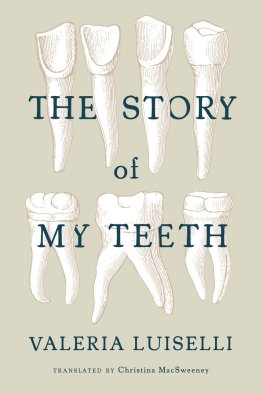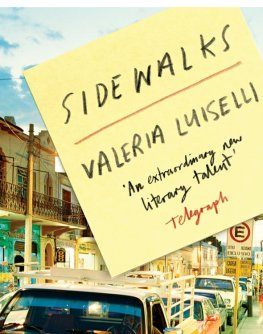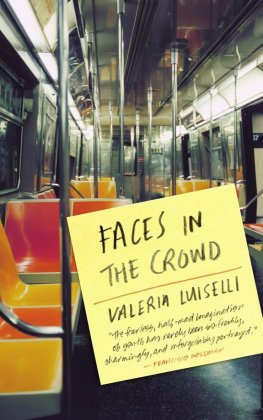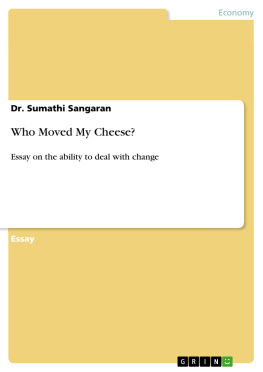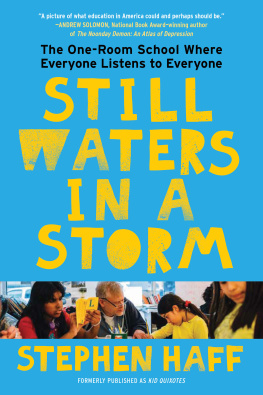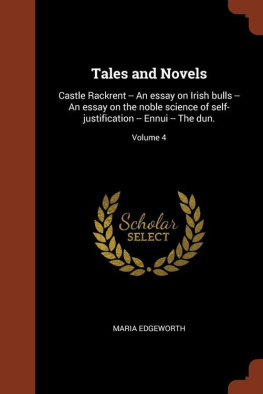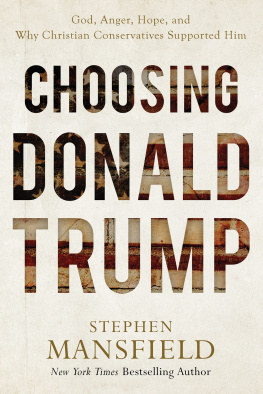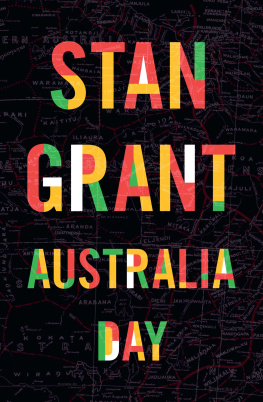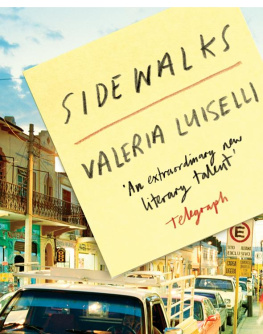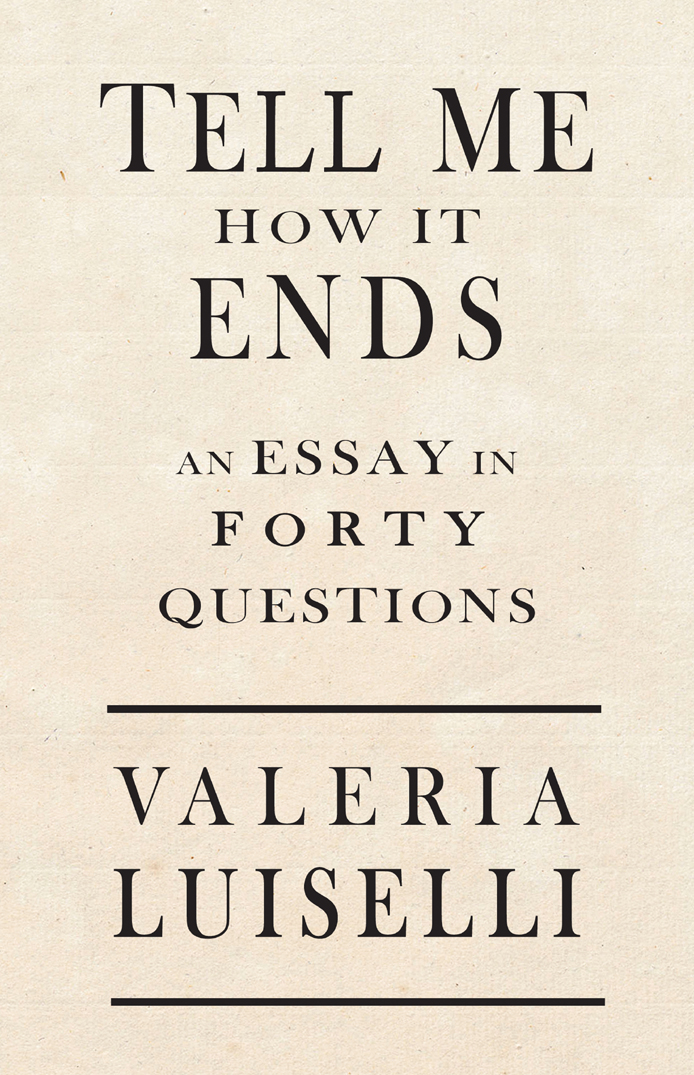Booksellers on Tell Me How It Ends
With gifted prose and a compassionate but penetrating gaze, Luiselli personalizes the ongoing plight of Latin American child migrants in the United States. Her own immersion as a translator informs a trenchant first-hand account of the labyrinthine legal processes and inevitable bureaucratic indifference faced by undocumented youth. Humane yet often horrifying, Tell Me How It Ends offers a compelling, intimate look at a continuing crisisand its ongoing cost in an age of increasing urgency.
Jeremy Garber, Powells Books
In the hours Valeria Luiselli spends at the immigration courts in NYC, her duty is to listen to children tell her stories about their scars and how they got them. Like a morbid game show, the childrens answers determine their fate. The grand prize? Permanent citizenship, if all goes well. The alternative? Deportation. Bonus: due to the volume of cases, the standard intake form forgives only those who have the most gruesome traumas, wounds that they can showand, of course, the language to speak about them. Part treatise, part memoir, part call to action, Tell Me How It Ends inspires not through a stiff stance of authority, but with the curiosity and humility Luiselli has long since established. It may not cure your panic, but it sure as hell wont feed it.
Annalia Luna, Brazos Bookstore
Tell me how it ends, the young daughter says to the mother. Valeria Luiselli uses this query, said of the heartbreaking, infuriating situation involving undocumented Central American children and the legal system they encounter here that she movingly chronicles in this powerful essay. She helps call to question where we as people, as a people, are with innocent children, who or what is alien, even the business of who is American, given that she casts this as a connective scenario, with what happens in Tegucigalpa being related to what happens in Hempstead, New York. In this we are all Americans, finally. Imagine being put into court systems without the language to speak, much less the adult language of law. And while this essay is brilliant for exactly what it depicts, it helps open larger questions, which were ever more on the precipice of now, of where all of this will go, how all of this might end. Is this a story, or is this beyond a story? Valeria Luiselli is one of those brave and eloquent enough to help us see.
Rick Simonson, Elliott Bay Book Company
Valeria Luisellis Tell Me How It Ends helped me see the crisis undocumented immigrants, especially children coming from Mexico and Central America, are facing in our country in much the same way Michelle Alexanders The New Jim Crow helped me see how slaverys legacy is being perpetuated in the mass incarceration of black Americans. As someone who has read every one of Luisellis books, I expected her writing here to be erudite and elegant, and it is, of course it is, but what I did not expect was for her writing to be this immediate and this personal. I did not expect to be hit this hard emotionally, to feel every fear and every longing in the deepest part of who I am. I cant remember the last time I read something and had this kind of physical reaction. I felt this book in the tug behind my eyes, in these hands shaking, in this heart beating too quickly. This is a work I will share with everyone I know. This is something every American needs to face, and to feel.
Kenny Coble, Kings Books
In an essay as bracing as it is searing, the incomparable Valeria Luiselli explores the 2014 immigration crisis. Luiselli writes with a clarity that underscores the nightmarish conditions and nonsensical bureaucracy undocumented children face on their passage to America and toward U.S. citizenship. Tell Me How It Ends evokes empathy as it educates. It is a vital contribution to the body of post-Trump work being published in early 2017.
Katharine Solheim, Unabridged Bookstore
Valeria Luisellis extended essay on her volunteer work translating for child immigrants confronts with compassion and honesty the problem of the North American refugee crisis. Its a rare thing: a book everyone should read.
Stephen Sparks, Point Reyes Books
Books like Tell Me How It Ends are like dew on a spiderweb, revealing the often forgotten and sometimes ignored threads of humanity that connect us all. Luiselli introduces us to one of the forgotten figures and tragic heroes of contemporary America: the child who risked everything to come here. Through stories about specific children, personal reflection, and consideration of our immigration system, Luiselli sheds light on what most of us would choose to ignore and gives new meaning to the question, Why are we here?
Josh Cook, Porter Square Books
Compelling and urgent, Tell Me How It Ends gives a face and a name to the hundreds of thousands who have committed the innocent crime of geography: being born in a certain time and place. The bureaucratic labyrinth of immigration, the dangers of searching for a better life, all of this and more is contained in this brief and profound work. Tell Me How It Ends is not just relevant, its essential.
Mark Haber, Brazos Bookstore
Valeria Luisellis Tell Me How It Ends is an important reminder that words matter. The questions we ask of others are built upon a foundation of assumptions about the past and expectations for the future. Appealing to the language of the United States fraught immigration policy, Luiselli exposes the cracks in this foundation. Herself an immigrant, she highlights the human cost of its brokenness, as well as the hope that it (rather than walls) might be rebuilt.
Brad Johnson, Diesel Bookstore


Copyright 2017 by Valeria Luiselli
Introduction 2017 by Jon Lee Anderson
Selected translations from the
Spanish edition 2017 by Lizzie Davis
Cover and book design by Connie Kuhnz
Author photograph Alfredo Pelcastre
Coffee House Press books are available to the trade through our primary distributor, Consortium Book Sales & Distribution, .
Coffee House Press is a nonprofit literary publishing house. Support from private foundations, corporate giving programs, government programs, and generous individuals helps make the publication of our books possible. We gratefully acknowledge their support in detail in the back of this book.
LIBRARY OF CONGRESS CATALOGING-IN-PUBLICATION DATA
The Cataloging-in-Publication data for Tell Me How It Ends is on file at the Library of Congress.
ISBN 978-1-56689-496-8 (eBook)
Acknowledgments
A shorter version of this essay was originally written in English and appeared in Freemans in 2016. The author then rewrote the essay in Spanish and, while doing so, expanded upon it. That version was published as Los nios perdidos (Un ensayo en cuarenta preguntas) by Sexto Piso in 2016. The new sections of the essay were translated into English by Lizzie Davis, in consultation with the author.
24 23 22 21 20 19 18 17 1 2 3 4 5 6 7 8
Table of Contents
Guide

I n Tell Me How It Ends



